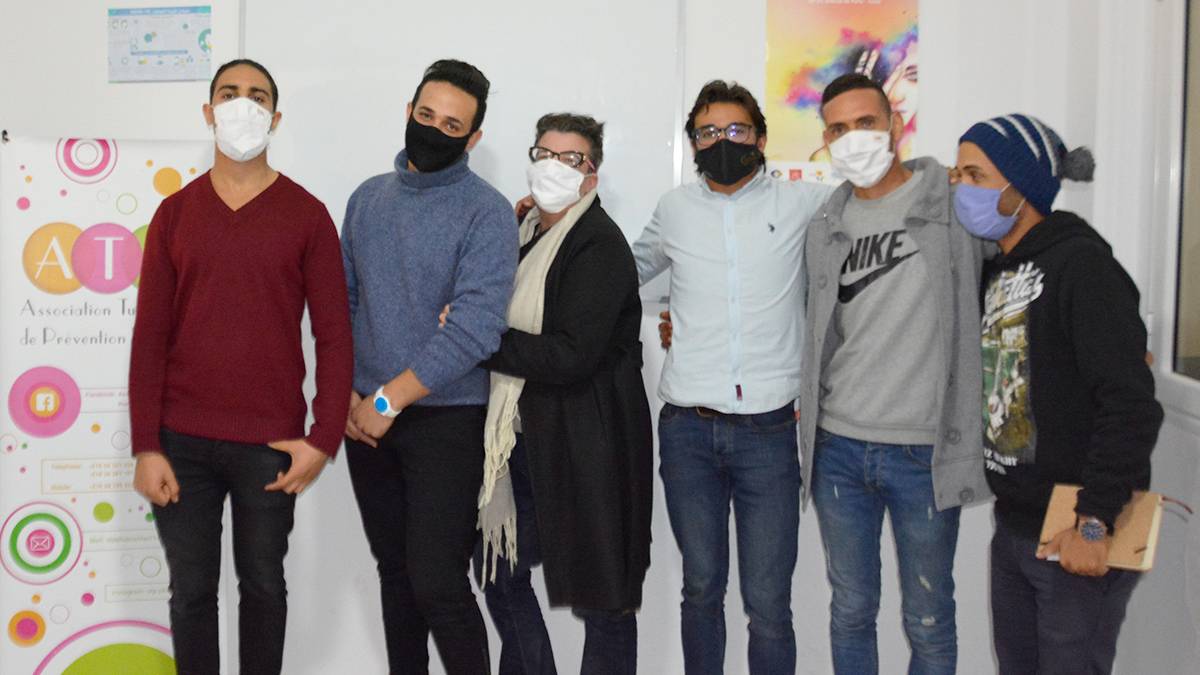
ATP+
Working in Tunisia alongside minorities at risk, especially women in all of their diversity, the Tunisian association for Positive Prevention (ATP+) has made women's empowerment and access to services and care the primary focus of their struggle.

With a hundred-strong team of staff and volunteers and barely six years after its creation ATP+ has succeeded in becoming a key player in the non-profit sector in Tunisia. The non-profit has two reception and screening centres in Tunis and Monastir, where women, young girls, children, PLHIV, LGBTQI+ and other vulnerable populations can get material support and care, as well as social and legal assistance.
Based on the observation that there are insufficient scientific studies on the situation of vulnerable populations in Tunisia, ATP+ has carried out several mapping projects in recent years to assess the situation of PLHIV, sex workers, women subjected to violence, migrants and LGBTQI+. Their goal? To demonstrate that these populations still have too little access to services. Under this framework, the non-profit has carried out a qualitative assessment of care provided for PLHIV in the four dedicated centres in the country, in partnership with the Institut Pasteur of Tunisia. Through its participation in the nationwide project “human and gender rights” ATP+ is also running a study on the stigmatisation and discrimination faced by patients in these centres.
Furthermore, ATP+ has developed awareness-raising and advocacy actions surrounding the fight against HIV and access to rights.
Key Figures
ATP+
years delivering support to women living with HIV
reception and screening centres in Tunisia
people supported
Close up
The December study programme (école de décembre) – a month of raising awareness and a wealth of events
Round tables, conferences and debates, presentation of the studies run by ATP+, screening days: the list of activities held by the non-profit during the “December study programme” is long. The aim of the “school” is to inform the population of Tunisia about preventing HIV and more broadly about access to healthcare, sexual and reproductive rights and about equality between the sexes. On-line, in their premises but also in and around the country, the events come in many different forms and bring together a large audience. In this way, they were able to organize a discussion forum on the topic “Gender, body and sexuality”, an open day, a training session on WHO recommendations for services linked to HIV and even present a legal review of the laws impeding PLHIV.
“I want to live”, an advocacy campaign by and for the key populations
In 2020, World AIDS Day provided an opportunity for ATP+ to organize its first campaign under the heading “I want to live” (Je veux vivre). The key populations that the association works with on a daily basis put their creativity to the test to come up with slogans in relation to a range of themes, including treatment for HIV, gender-based violence and discrimination that they face. For one month social networks were buzzing with statements and calls for mobilisation. Some of the notable comments were “Who will speak up about our rights?” “Where are our representatives in Parliament”, “Don’t change my treatment because it is out of stock”, “Don’t give me out of date medication anymore” or even ” Wake up! The 92 law must change”. The Tunisian law 92-71 of 27 July 1992, on communicable diseases has indeed been criticised by many NGO that defend human rights. Amongst their complaints are the fact that the principal of universal access to treatments and of the right to confidentiality is not recognised or that the legal necessity for non-discrimination does not extend beyond the right to access care.